new posts in all blogs
Viewing: Blog Posts Tagged with: summer learning, Most Recent at Top [Help]
Results 1 - 7 of 7
How to use this Page
You are viewing the most recent posts tagged with the words: summer learning in the JacketFlap blog reader. What is a tag? Think of a tag as a keyword or category label. Tags can both help you find posts on JacketFlap.com as well as provide an easy way for you to "remember" and classify posts for later recall. Try adding a tag yourself by clicking "Add a tag" below a post's header. Scroll down through the list of Recent Posts in the left column and click on a post title that sounds interesting. You can view all posts from a specific blog by clicking the Blog name in the right column, or you can click a 'More Posts from this Blog' link in any individual post.

By:
vschneider46,
on 6/2/2016
Blog:
The Open Book
(
Login to Add to MyJacketFlap)
JacketFlap tags:
Uncategorized,
Diversity,
Summer,
book lists,
summer reading,
Educators,
summer vacation,
summer reading lists,
summer slide,
summer learning,
Educator Resources,
Book Lists by Topic,
summer book lists,
2016 book list,
2016 summer lists,
Add a tag
Memorial Day Weekend has come and gone, which can only mean one thing. The end of June is right around the corner (hang in there teachers!).
Now, we are all well aware of the importance of having access to books and the harmful effects of the slippery slope that is the summer slide.
So, to keep the kids reading all summer long, LEE & LOW has put  together a Diverse Summer 2016 Reading List for Grades PreK-8 and printables which you can freely download here or find listed below. Each list contains books that not only highlight different grade-appropriate interests, such as sports, music, sci-fi/fantasy, and the environment, but also explore diverse cultural backgrounds and traditions.
together a Diverse Summer 2016 Reading List for Grades PreK-8 and printables which you can freely download here or find listed below. Each list contains books that not only highlight different grade-appropriate interests, such as sports, music, sci-fi/fantasy, and the environment, but also explore diverse cultural backgrounds and traditions.
These lists are not only an excellent tool to help you include diverse books in your summer suggested reading lists, but a way to begin diversifying the books available to students in your classroom libraries. It is important to remember that diverse books are not only for diverse readers. Reading books featuring diverse characters and communities mirror experiences in their own lives, allowing children to see themselves reflected in the stories they love, but they also provide windows into other life experiences to understand and be more accepting of the world around them.
Finally, there are many great organizations compiling and creating Summer Reading Book Lists and offering free, exciting programs for the summer. Be sure to check out your local library as well as the following groups for additional summer reading tips, suggestions, and ideas:
 Veronica has a degree from Mount Saint Mary College and joined LEE & LOW in the fall of 2014. She has a background in education and holds a New York State childhood education (1-6) and students with disabilities (1-6) certification. When she’s not wandering around New York City, you can find her hiking with her dog Milo in her hometown in the Hudson Valley, NY.
Veronica has a degree from Mount Saint Mary College and joined LEE & LOW in the fall of 2014. She has a background in education and holds a New York State childhood education (1-6) and students with disabilities (1-6) certification. When she’s not wandering around New York City, you can find her hiking with her dog Milo in her hometown in the Hudson Valley, NY.
You’ve been their teacher for nearly ten months. It seems like only September that a new gaggle of hungry learners entered your classroom. What a journey it has been!
Summer is fast approaching, which means:
 You will not have explicit control over your students’ daily schedules and learning much longer
You will not have explicit control over your students’ daily schedules and learning much longer- Summer slide is a serious risk
- Summer school, camps, and programs are quickly filling up (some by February!)
- Summer learning can make a difference
So in your final guidance to your students and families—help connect them with the right summer learning opportunities!
Summer slide can happen to any student, but is particularly detrimental for low-income children. If you work in a Title I school, for example, families may lack time to research and to apply early, supplemental income to put towards summer programming, or even the language (English) to navigate and negotiate with programs.
Engaging parents in the summer program process is critical. Ten months together with a student and family is significant, but the summer break is a sobering reminder that our time with students is so short (too short) on their grand education journeys.
Reality: We have about 900 hours a year with students, compared to the 7,800 hours students spend out of school. And so, finding a summer learning opportunity for our students is one last opportunity to engage parents as partners and recognize them as the ultimate teachers and advocates of their children.
Why should educators and school staff support with summer planning? Helping families navigate the convoluted summer programs race, you’ll ensure:
- your students retain the growth they achieved with you
- your students find a safe, healthy place to continue learning for the next two months—many of these programs provide not only academic support, but also necessary meal services that families have depended on during the school year
- your students get exposed to new experiences in art, science, music, or sports which will help them build their background schema—a critical reading strategy
- the next grade’s teacher will love you forever (no wants to spend the first month(s) of school re-teaching or reminding students what they already learned, thereby losing precious learning time for new material—full steam ahead!)
FIRST, start your own research now.
- Does your school offer summer school or host a summer day camp?
- Ask around: What programs did your students from last year go to that they would recommend for your current students? What academic programs do your colleagues and administrators recommend? Does the school’s PTA know of local quality opportunities?
- Head straight to the local library in the neighborhood of your school—no one does better research on community resources than here, and I have found incredible, meticulously curated binders on health resources, summer camps, preschools, and more in the Children’s Rooms of many public library branches.
Program finders:
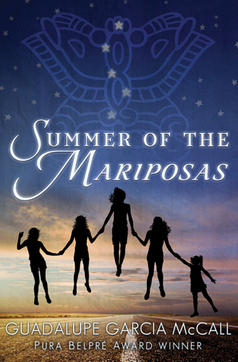 Questions to consider when looking into programs:
Questions to consider when looking into programs:
- How is reading incorporated? Sports clinics are great for addressing the opportunity gap, but the major goal is about preserving (and hopefully increasing) reading and math literacy
- Is transportation available?
- Are breakfast and lunch provided?
- Are scholarships available? Groups like Wishbone and The Fresh Air Fund can help cover the cost to otherwise out-of-reach high quality programs
- Can siblings of different ages participate?
- Are materials available in other languages or staff members able to communicate with non-English speaking families?
SECOND, begin talking to your students and their families NOW (inquire at after-school pickup and in your final parent-teacher conference). Ask:
- What are your plans for the summer?
- How will your child continue reading practice and discover books?
- Have you ever considered a day camp or summer school program?
- What has been a challenge in finding a program before? (Likely challenges in the past: language, cost, ability to take siblings or multiple age groups, transportation, general convenience, or compatibility with work schedules)
- Discuss summer slide and if/how their child may be at risk. Talk about some ways to prevent summer slide at home and the benefits of local programs.
THIRD, present families with 3-4 programs you have found that are convenient. You do not need to offer families the whole menu of options (thanks, internet) and, frankly, many may not be realistic due to waiting lists, distance, or cost. You know your families and what is doable.
Having said that, you may also discover scholarships to summer programs that your families wouldn’t have even considered—if you can connect them, do it! These are memories your students will have forever.
FINALLY, hold parents accountable. Consider having an after school or morning session with a couple of laptops in your classroom for parents to register and learn more. (In my first year of teaching, my grade level colleague physically connected parents to the registration forms by printing a couple of forms to attach in the summer learning packets and discussed options in the final parent-teacher conference). In this way, you can:
- help families learn about programs near their neighborhood
- answer questions
- provide translation of a website or help make a phone call to specific programs on behalf of families whose first or preferred language to speak in isn’t English
- create a visible support system among families who are also registering, which will increase chances of success for when you are working and studying elsewhere during the summer (as well as help with carpooling!)
Be Pragmatic. Don’t feel like you need to coordinate 30+ students’ summer learning plans and help students decide between sports clinics. Zero in on students whose learning achievements seem the most precarious and you know that if you don’t help point out a summer learning opportunity, they face two months of staying at home with the T.V.
Even if you only get a couple of families (with siblings) registered this time around, next year they will be back championing the experiences and opportunities, and can be partnered with to encourage other families—nothing like seeing someone like you participate to make you rethink what is possible for your family.
 Recommended Reading:
Recommended Reading:
Jill Eisenberg, our Senior Literacy Expert, began her career teaching English as a Foreign Language to second through sixth graders in Yilan, Taiwan as a Fulbright Fellow. She went on to become a literacy teacher for third grade in San Jose, CA as a Teach for America corps member. She is certified in Project Glad instruction to promote English language acquisition and academic achievement. In her weekly column at The Open Book, she offers teaching and literacy tips for educators.
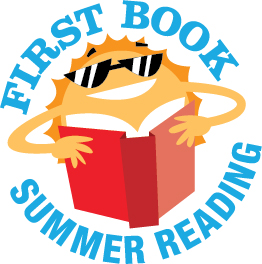 All summer long, you’ve heard how summer slide – the learning loss that occurs when kids are out of school – adds up for kids who don’t have access to books and other learning opportunities.
All summer long, you’ve heard how summer slide – the learning loss that occurs when kids are out of school – adds up for kids who don’t have access to books and other learning opportunities.
But there’s good news – many schools and organizations throughout the country are working hard to stop summer slide.
Take Kansas City, Missouri, for example. Over the last two summers, a coalition of KC-based organizations have been working with First Book to help reverse summer learning loss for kids in their community.
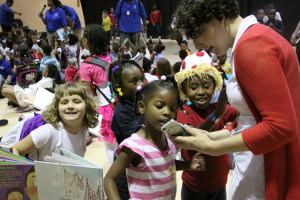 “More needs to be done to address the summer reading loss,” says Brent Schondelmeyer, communications director for LINC. “With First Book, the Kansas City Public Library, the Mid-County Public Library, Turn the Page KC and other local partners, we are taking an intentional approach to summer reading. And we will use our summer experience to expand how we support reading all year long.”
“More needs to be done to address the summer reading loss,” says Brent Schondelmeyer, communications director for LINC. “With First Book, the Kansas City Public Library, the Mid-County Public Library, Turn the Page KC and other local partners, we are taking an intentional approach to summer reading. And we will use our summer experience to expand how we support reading all year long.”
Last summer, First Book provided 10,000 high-quality books to elementary school children in Kansas City Public Schools. The books were distributed as part of a comprehensive reading program led by the Local Investment Corporation (LINC), the Kansas City Public Library and the mayor’s office.
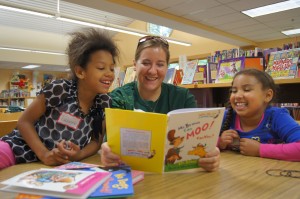 The students who receive the books showed reading gains, instead of losses. More significantly, students from Title I schools who read over the summer saw higher improvements.
The students who receive the books showed reading gains, instead of losses. More significantly, students from Title I schools who read over the summer saw higher improvements.
The great work being done in Kansas City confirms: access to books is key to reversing summer learning loss.
This summer, LINC’s game-changing program expanded. More than 30,000 books from the First Book Marketplace have been distributed to 72 schools, all in an effort to keep kids reading and learning while school’s out. The hope is that the gains made last year will continue and that more kids in the Kansas City area will be ready to start the school year off right.
Check out this video to learn more about what’s happening in Kansas City.
Want to learn more ways First Book is supporting organizations like LINC? Sign up to receive stories of impact and inspiration!
The post How Kansas City Kids Beat Summer Slide appeared first on First Book Blog.


By: Samantha McGinnis,
on 7/18/2014
Blog:
First Book
(
Login to Add to MyJacketFlap)
JacketFlap tags:
General,
Books & Reading,
Summer Reading,
Partners,
First Book Partners,
feeding sites,
No Kid Hungry,
Share Our Strength,
Summer Learning,
Summer Fun Starter Kits,
Add a tag
 For kids from low-income families, summer doesn’t always mean carefree fun. Many kids have fewer learning opportunities and parents often struggle to find safe, affordable childcare, making summer a time of stress and worry.
For kids from low-income families, summer doesn’t always mean carefree fun. Many kids have fewer learning opportunities and parents often struggle to find safe, affordable childcare, making summer a time of stress and worry.
For more than 21 million kids who rely on free and reduced price meals during the school year, summer is also a time of hunger. Forty three percent of families that rely on school meal programs find themselves without enough food when school is out.
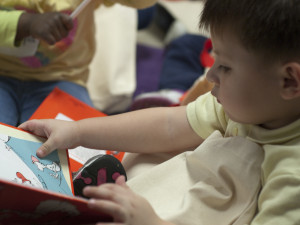 First Book knows kids need to be nourished in body and mind, during the summer and all year-round. That’s why First Book teamed up with Share Our Strength to support the No Kid Hungry campaign.
First Book knows kids need to be nourished in body and mind, during the summer and all year-round. That’s why First Book teamed up with Share Our Strength to support the No Kid Hungry campaign.
That’s where First Book and the No Kid Hungry campaign can make a difference. The No Kid Hungry campaign is making great strides to connect more kids with free summer meals in their community. So we teamed up with them to also provide high-quality summer learning opportunities at summer meals sites across the country. Books help site leaders keep kids learning in a safe environment, while incentivizing them to return each day and get ready for the upcoming school year.
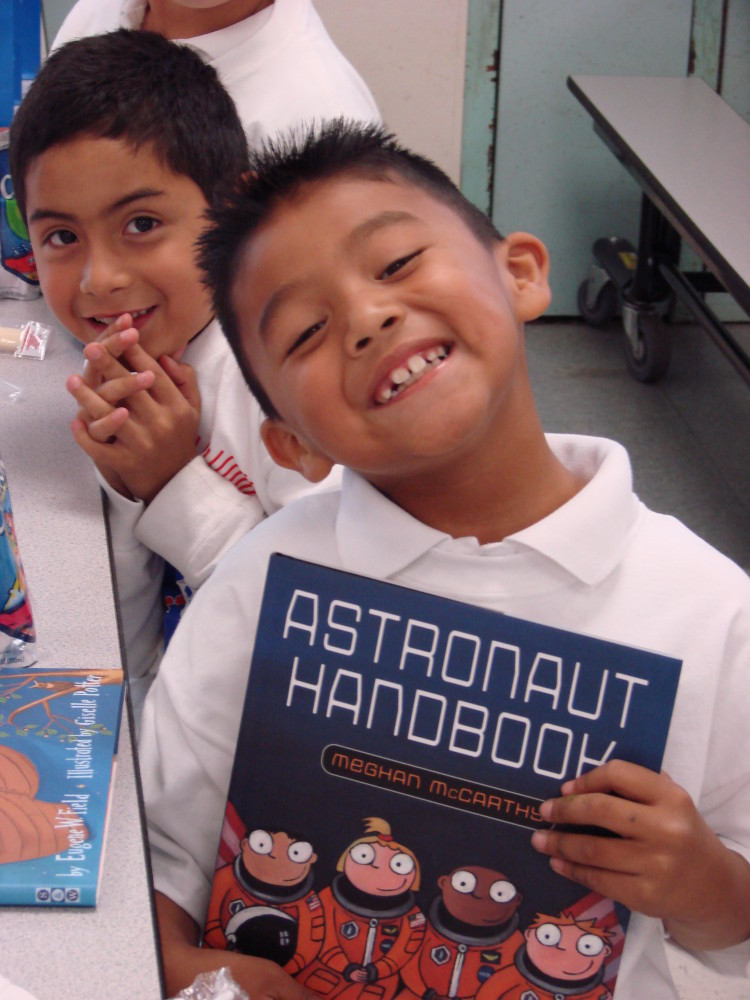 This summer, First Book and the No Kid Hungry Campaign teamed up to create Summer Fun Starter Kits, available on the First Book Marketplace. These collections of 25 or 50 great books are a fun, easy way for summer meal sites to incorporate books into their programming. All summer meals sites are encouraged to sign up with First Book to access affordable books for the kids they serve.
This summer, First Book and the No Kid Hungry Campaign teamed up to create Summer Fun Starter Kits, available on the First Book Marketplace. These collections of 25 or 50 great books are a fun, easy way for summer meal sites to incorporate books into their programming. All summer meals sites are encouraged to sign up with First Book to access affordable books for the kids they serve.
There are thousands of summer meal sites across the country, and you can find them in your community by visiting www.nokidhungry.org/summermeals. If you know a site in your community, encourage them to sign up with First Book to help kids grow and learn over the summer.
The post No Kid Hungry: Summer Feeding and Summer Fun appeared first on First Book Blog.


Photo by Saverio Truglia for TIME
During the lazy, hazy days of summer, between the pool, video games and everything in the middle, children risk losing a significant portion of what they learned during the previous school year. While some children have access to resources to curb their summer reading loss, many, unfortunately do not. Without activities to keep these children’s minds sharp, they risk falling behind in school and beyond.
In Time Magazine’s “The Case Against Summer Vacation,” author David Von Drehle argues that students should have access to a school’s resources all year long so that children who cannot attend summer camps or educational field trips retain their knowledge. If the school year were extended over the summer months all students would have equal access to resources, preventing summer brain drain for all children, regardless of income.
First Book’s mission addresses one of the most important factors of literacy-access to books. By giving books to less privileged children First Book hopes to lessen the learning gap between low-income children and their higher income counterparts. If you know of a community which could benefit from First Book resources, please visit our website at www.firstbook.org to get them registered, or consider donating to First Book. Every $2 helps bring a new book to a child who needs it most!


By: Nisha T.,
on 6/18/2010
Blog:
First Book
(
Login to Add to MyJacketFlap)
JacketFlap tags:
Books & Reading,
First Book,
BigUniverse,
cheerios,
Father's Day,
Literacy Links and Articles,
Random House,
Mary Pope Osborne,
reading rockets,
Magic Tree House,
Spoonfuls of Stories,
Summer Learning,
Add a tag
Give the Gift of Reading this Father’s Day
Don’t forget to wish Dad a Happy Father’s Day this Sunday, June 20th. If you’re still stumped for a last-minute gift, consider making and online donation to First Book in honor of your dad or whomever you choose. After making a donation you can send him an e-card to remind Dad how special he is.
Big Universe: Read, Create and Share Children’s Books Online
This site is a great resource for reading, writing and learning. The site offers book suggestions, reading quizzes, and even the opportunity for kids to create their own children’s books. Parents and educators can even help kids share their creations with other students using the site’s virtual bookshelves.
Magic Tree House Series Goes Digital
Now fans of Mary Pope Osborne’s Magic Tree House Series can cherish them forever as e-books. All forty-three titles have been converted to digital versions. Random House is now proud to offer this classic children’s book series in print, audio and digital.
4th Cheerios New Author Contest
Have you ever dreamed of seeing your ideas in print? Through Cheerios’ Spoonfuls of Stories New Author Contest aspiring authors have the chance to submit their children’s books in the hopes of being selected as the winner. The winning story gets published and packaged in Cheerios boxes and released for purchase as well.
More Tips from Reading Rockets to Curb Summer Learning Loss
Keeping kids engaged in learning activities over the summer can be a challenge. Here are some more great ideas to keep kids interested and having fun while they learn. From planting a garden and neighborhood book clubs to interactive websites and writing activities, this list is sure to keep your child busy during the summer months.


By: John T.,
on 7/9/2009
Blog:
First Book
(
Login to Add to MyJacketFlap)
JacketFlap tags:
General,
Literacy,
Barack Obama,
summer reading,
Books & Reading,
Literacy Links and Articles,
President Barack Obama,
National Summer Learning Day,
Summer Learning,
Add a tag
President Obama has addressed educational awareness through his latest act - declaring today, July 9th 2009, as National Summer Learning Day, and calling youth throughout the country to partake in service as well as extracurricular activities.
National Summer Learning Day will consist of several nonprofit sponsored events across the country. These fun filled educational activities range from a group of Chicago students from Kids Keep Learning taking a trip to the Federal Reserve Bank of Chicago, to a group of Harlem kids, involved in REAL Kids reading and enrichment summer program at Harlem, participating in a formal induction for summer baseball teams.
National Summer Learning Day looks to improve the summer for all children, moving kids from the couch to the community. A decrease in reading and learning over the summer months contributes to the achievement gap between middle and lower class children. In fact, according to a study at John Hopkins University, a summer loss of 3 months results in a gap of 18 months by the end of 6th grade.
To learn more about the National Summer Learning Day, please visit www.summerlearning.org.
 together a Diverse Summer 2016 Reading List for Grades PreK-8 and printables which you can freely download here or find listed below. Each list contains books that not only highlight different grade-appropriate interests, such as sports, music, sci-fi/fantasy, and the environment, but also explore diverse cultural backgrounds and traditions.
together a Diverse Summer 2016 Reading List for Grades PreK-8 and printables which you can freely download here or find listed below. Each list contains books that not only highlight different grade-appropriate interests, such as sports, music, sci-fi/fantasy, and the environment, but also explore diverse cultural backgrounds and traditions. Veronica has a degree from Mount Saint Mary College and joined LEE & LOW in the fall of 2014. She has a background in education and holds a New York State childhood education (1-6) and students with disabilities (1-6) certification. When she’s not wandering around New York City, you can find her hiking with her dog Milo in her hometown in the Hudson Valley, NY.
Veronica has a degree from Mount Saint Mary College and joined LEE & LOW in the fall of 2014. She has a background in education and holds a New York State childhood education (1-6) and students with disabilities (1-6) certification. When she’s not wandering around New York City, you can find her hiking with her dog Milo in her hometown in the Hudson Valley, NY.











[…] Help Your Students & Families Find the Best Summer Learning Opportunities […]
[…] Help Your Students & Families Find the Best Summer Learning Opportunities […]
[…] Help Your Students & Families Find the Best Summer Learning Opportunities […]
[…] Help Your Students & Families Find the Best Summer Learning Opportunities […]
[…] Help Your Students & Families Find the Best Summer Learning Opportunities […]
This is a good article, but while recommending the public library as a location to find out about summer programs, you fail to mention that over 90% of public libraries large and small have summer reading programs, often designed for a wide range of ages. Not only do they encourage summer independent reading to help combat the summer slide, but many of them also have regularly scheduled programming, some of which may be “just for fun,” but much of which has educational content.
Hi Sue-
Thank you for pointing this out! You are absolutely right and I have added this in! -Jill